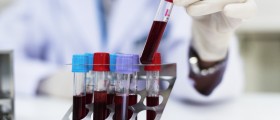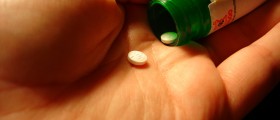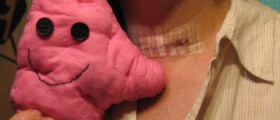
TSH
Thyroid stimulating hormone (TSH) is formed in the pituitary gland, located at the base of the brain. Pituitary gland is the most important gland of the endocrine system. It secretes TSH, TSH stimulates thyroid gland and this gland then produces thyroid hormones T3 and T4. T3 is known as triiodothyronine and T4 as thyroxine hormone. If there are any abnormalities in thyroid function, doctors will advise you to do a TSH blood test to diagnose potential hypothyroidism or hyperthyroidism.
TSH Blood Test
TSH blood test is used to measure the amount of this hormone in the bloodstream. This blood test doesn’t require you to fast, because the test can be performed at any time of the day. People using certain medications, such as amiodarone, anti-thyroid medications, dopamine, lithium, potassium iodide or Prednisone, might be asked to stop them before the test. These drugs might affect test results and cause misdiagnose.
The TSH blood test is the same blood test as any other. The nurse will wrap an elastic band over you upper arm, to make your vein swollen and more visible. S/he will disinfect the puncture spot and using the needle puncture the vein and remove the elastic band. After the collection of blood sample, s/he will remove the needle, apply some pressure onto the punctured area and cover the spot to prevent further bleeding. Collected blood sample will be sent to the lab for testing.
TSH Lab Results
Normal TSH level for adults are between 0.4 and 4.0mlU/l. TSH values under 2mlU/L are considered as early stages of hypothyroidism. It means that this person might develop hypothyroidism in the future and these patients should always be closely monitored by their doctors.
High levels of TSH might be caused by: primary hypothyroidism, thyroid hormones resistance and TSH-dependant hyperthyroidism. Vets and lab staff exposed to mice can also show elevated TSH levels. High TSH can also be associated with cretinism.
Low TSH levels indicate that this person suffers from hyperthyroidism or the deficiency of thyroid stimulating hormone (TSH). Sometimes, people using dopamine agonists, bexarotene or glucocorticoids may also have lower than average levels of TS hormone.
If you experience abnormal TSH levels in the blood you should know that the treatment of high or low TSH is individual. Consult your doctor about the test results and s/he will decide the best possible treatment option for your condition. The treatment should improve your TSH levels and keep them somewhere between 0.5 and 3.0mlU/l.







-During-Pregnancy_f_280x120.jpg)






-In-Infants-And-Older-Children_f_280x120.jpg)


Your thoughts on this
Loading...